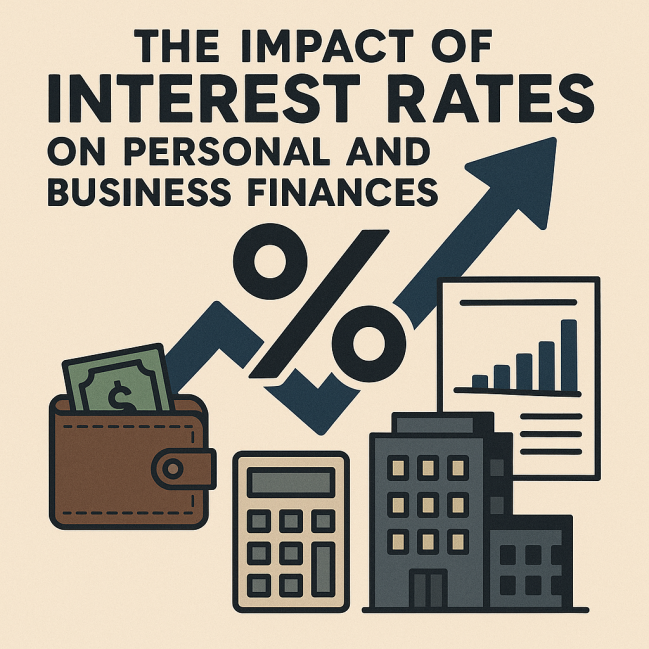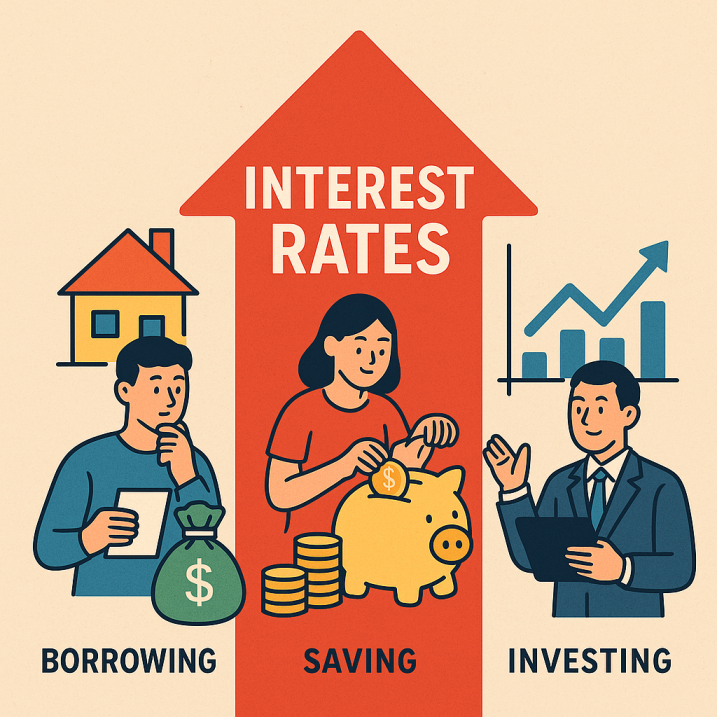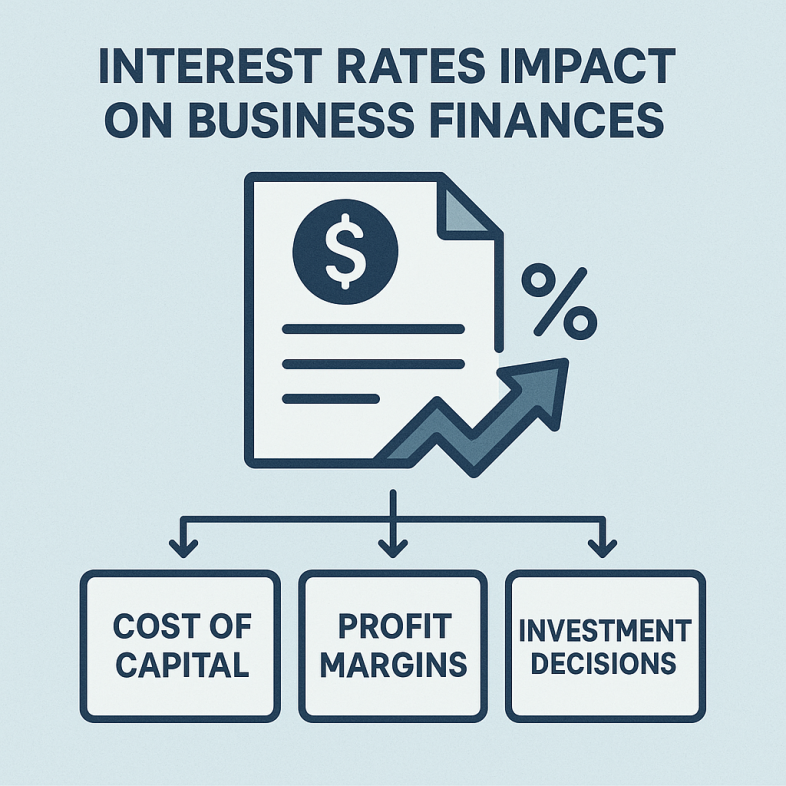The level of interest rates is one of the most important factors affecting financial decision-making by both individuals and businesses. When it comes to personal finance, individuals take out loans and save money. When it comes to making business decisions, both personal and corporate levels of interest rates act as a brake or accelerator on the finance of the firm, affecting half a dozen ways in which firms finance themselves and make investment decisions.
What Are Interest Rates?
Rates of interest represent the cost incurred for the use of money that has been borrowed or the earnings that are realized on money that has been saved or invested. They are expressed as a percentage of the total amount that has been borrowed or saved, and they are set mostly by the central banks of the world to achieve certain goals that are related to the well-being of the economy.
The rates that commercial banks charge for loans and pay on deposits are influenced indirectly when central banks change interest rates. This is a three-steps-back-from-the-frontal-lobe effect. Central banks don't tell commercial banks what to do. Central banks use interest rate changes to send signals. The signals make their way through the economy and reach the lives of everyday people.

Impact on Personal Finances
Personal financial decisions involving in borrowing, saving, and investing—are heavily influenced by interest rates.
- Borrowing Costs:
Low interest rates mean that it is less expensive to borrow money. People are more inclined to take out personal loans, car loans, and mortgages when they know they won’t have to pay back as much, and the result can be that this kind of consumer borrowing can itself be a kind of engine for economic growth.
- Savings:
The banks give you better returns on savings accounts, fixed deposits, and bonds to his clients . You're encouraged to save, not to spend so much. When interest rates are low, the returns on your savings are also low, and you might decide to look elsewhere for better opportunities—like the stock market or real estate—to earn the returns you want.
- Debt Management:
Interest rates that go up and down can have quite a big effect on people who have loans—especially those with loans that are tied to the market, like variable-rate mortgages. When rates go up, these folks pay more.

Impact on Business Finances
Alterations in interest rates have a uniform impact on companies. In effect, companies take the same hits as individuals when interest rates spike or plummet. The interest rate influence can be observed in:
- Cost of Capital:
American companies depend upon loans to furnish their undertakings. When they wish to extend their operations, or when they desire to pursue fresh initiatives and pour money into them, they commonly approach the banks and other creditors with which they have relationships and strike bargains over loan contracts.
- Profit Margins:
A company's profit can be affected by rising interest rates. When rates increase, companies that have borrowed heavily may find their expenses rising at a time when profits are already under pressure.
- Investment Decisions:
Interest rates affect investment decisions made by a firm. If rates are low, a firm might prefer to take out loans to invest in technologies, or infrastructure. however, if the cost of borrowing is high, a company might not be very interested in expansion.

Conclusion
The far-reaching effect of interest rates on personal and business finances cannot be overstated. They affect borrowing costs, the returns on savings, and the overall health of finances. The rate influences how much money a person or business makes and how much it costs to pay back. The relationship between rates and the economy has been monitored for years. Interest rates have a direct effect on how businesses plan for the future and how individuals map out their lives.




